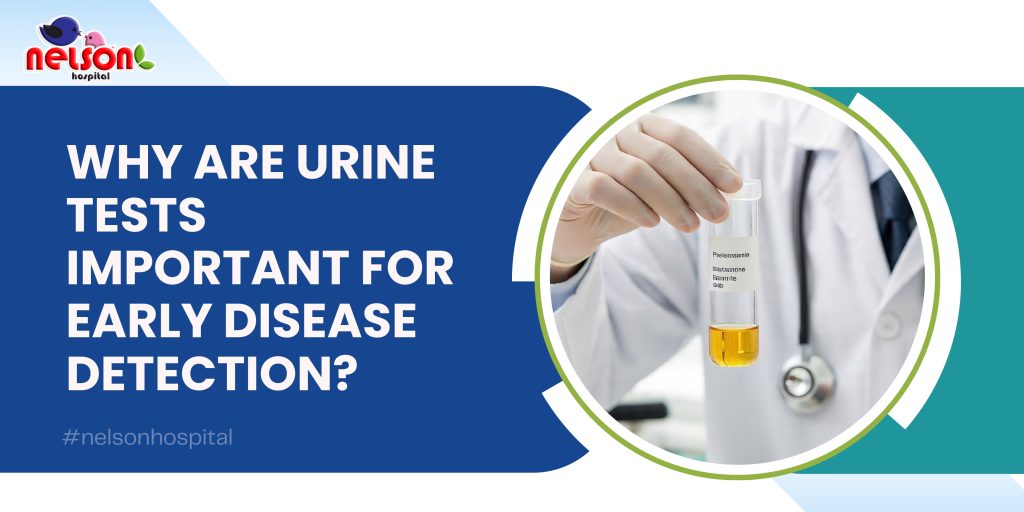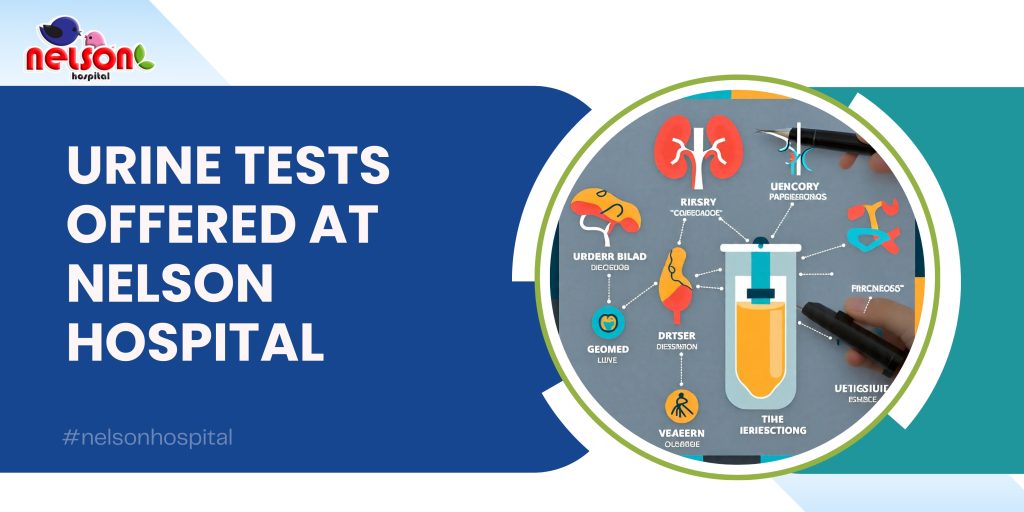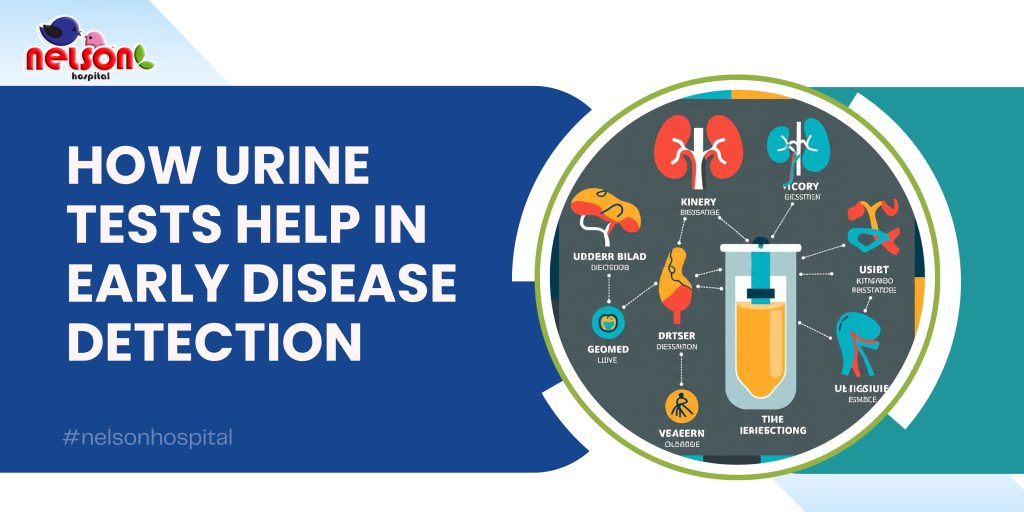World Eye Donation Day: Nelson Hospital’s First Eye Implant Surgery
World Eye Donation Day: Nelson Hospital’s First Eye Implant Surgery…
9518951959
info@nelsonhospitals.com
9518951959



When it comes to detecting diseases early, simple diagnostic tools can make a big difference. Among them, urine tests are one of the most effective, affordable, and non-invasive options available. At Nelson Hospital, we emphasize routine urine analysis as a key part of preventive health care. But why are urinary tests so important? Let’s explore the science and significance behind it.
A urine test, also known as urinalysis, is a laboratory test that examines the content, appearance, and chemical composition of your urine. It is commonly performed as part of a routine health checkup or when symptoms such as fever, back pain, or changes in urine color occur.
Urine tests are useful because your kidneys filter waste, toxins, and excess substances from your blood. Any abnormality in your body’s function often leaves a trace in the urine – making it an early warning signal for a variety of health problems.

There are several types of urine tests, each used to detect different health conditions:
Nelson Hospital’s advanced pathology lab ensures accurate and quick results for all types of urine tests.

1. Detecting Kidney Problems Before They Worsen: Kidney issues like nephritis, kidney stones, and chronic kidney disease (CKD) often begin with minor symptoms. A simple urine protein or creatinine test can catch these red flags early, enabling timely treatment.
2. Identifying Urinary Tract Infections (UTIs): Burning sensation, cloudy urine, or fever? These could be signs of a UTI. A urine culture test helps identify the exact bacteria responsible, so the right antibiotics can be prescribed immediately.
3. Monitoring Diabetes and Blood Sugar: Excess glucose in urine is a warning sign of diabetes. Regular urine tests help monitor blood sugar management, especially for diabetic patients.
4. Detecting Liver Disorders: High levels of bilirubin or abnormal color may indicate liver malfunction or jaundice, especially in children or elderly individuals.
5. Early Pregnancy Detection: For women trying to conceive, a home or lab-based urine pregnancy test is often the first step in confirming pregnancy. Early detection is key to prenatal care.
6. Cancer Markers: In rare cases, certain cancers can be identified through specialized urine marker tests, such as bladder or prostate cancer.
Your urinalysis report will contain results for:
Doctors at Nelson Hospital interpret these values to provide an accurate diagnosis or advise further tests if necessary.
At Nelson Hospital, we follow a preventive care approach. This means we encourage patients to get routine urine tests even when they’re not feeling sick. Here’s why:
We advise patients over 40, diabetics, and people with a family history of kidney disease or hypertension to get tested every 6–12 months.
Tips from Nelson Hospital’s Diagnostics Team:
Our trained technicians ensure you feel comfortable and confident during the collection process.
No, but it’s a useful screening tool. Based on results, your doctor may suggest blood tests, imaging, or consultation with a specialist.
Most reports are ready within 24 hours at Nelson Hospital.
It’s better to wait until after your period unless it's urgent. Menstrual blood can interfere with results.
Yes, they’re non-invasive and completely safe for all age groups.
At Nelson Hospital, we believe that early detection saves lives. A routine urine test can uncover hidden health problems before they become serious. Whether it’s kidney health, diabetes management, or infection screening, urinalysis is your first line of defense.
World Eye Donation Day: Nelson Hospital’s First Eye Implant Surgery…
Why Food Poisoning Is More Common in Monsoon and What…
Why Are Urine Tests Important for Early Disease Detection? When…
Which Food to Avoid for Kidney Stones and What Foods…
When Surgery Is Needed in Urology Cancer Treatment: A Doctor’s…